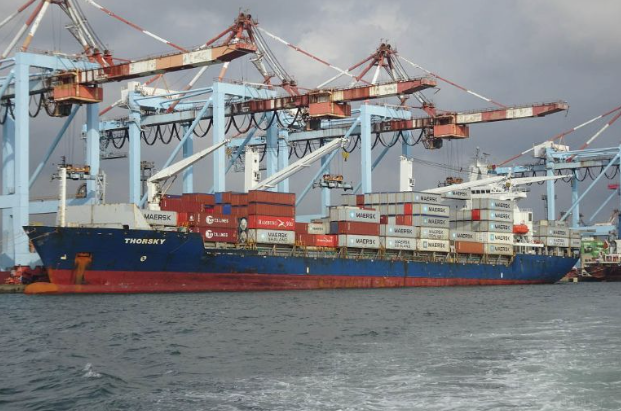An MSC-owned container ship was attacked by Houthi rebels while crossing the Red Sea on 4 March.
According to the US Central Command, the 1999-built, 2,169 TEU MSC Sky II was attacked 91 nautical miles southeast of Aden, Yemen, around 2.15 am (Yemen time).
UK Maritime Trade Operations (UKMTO) said, “The master reports the vessel is clear of the area and is proceeding to its next port of call. The vessel and all crew are reported as safe. Vessels are advised to transit with caution and report any suspicious activity to UKMTO.”
The rocket assault on the Liberia-flagged MSC Sky II caused a fire to start onboard.
UK security company Ambrey stated that two rockets were fired at the ship, with the first one landing some distance from MSC Sky II, while the subsequent one damaged the crew accommodation quarters.
Ambrey pointed out that “the explosion further led to a fire onboard and the crew’s firefighting efforts were under way.”
AIS data shows MSC Sky II, which was sailing from Singapore to Djibouti, is continuing its passage.
Formerly named Thorsky, MSC Sky II was one of many ships aggressively acquired by MSC in 2021 as the Covid-19 pandemic saw freight rates hit historically high levels.
The attack on MSC Sky II happened after the Handysize bulk carrier Rubymar sank on 2 March, 13 days after being assaulted by the Houthis.
Since November 2023, the Iran-backed Houthis have been targeting merchant ships transiting the Red Sea, in response to the Israel-Gaza conflict, causing many vessels, boxships in particular, to reroute around the Cape of Good Hope. Ships still crossing the Red Sea have had to broadcast AIS messages asserting they are not going to Israel, or have all-Chinese crew.
Owned by Lebanon-based Blue Fleet Group, the 1997-built Rubymar was the first of the Houthi-targeted ships to sink. Its 24-man crew, comprising 11 Syrians, six Egyptians, four Filipinos and three Indians were evacuated after leaving the ship, which suffered water ingress after the attack, at anchor.
Martina Li
Asia Correspondent







